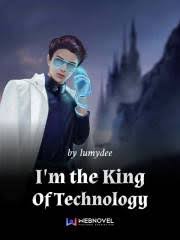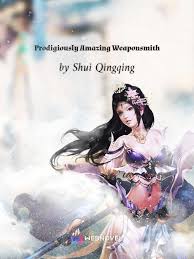The Story in 3 Sentences
Bankruptcy, divorce, and his wife’s betrayal deliver a crushing triple blow to 35-year-old Yang Hao, leaving him utterly destitute and humiliated.
Amidst his lowest moment, he accidentally inherits a vast fortune through a mysterious Monopoly game system, granting him properties and wealth that catapult him into a new reality.
Armed with this unexpected power, Yang Hao rebuilds his life from the ground up, navigating business empires, hidden identities, and complex relationships while leaving his past failures far behind.
Why It Stands Out
1. From Rags to Real Estate Tycoon via Board Game Logic
The novel ingeniously repurposes the classic Monopoly board game into a supernatural wealth-generation engine, transforming dice rolls and property cards into a narrative device that feels both whimsical and grounded in urban fantasy. Instead of magic spells or martial arts, the protagonist’s power stems from strategic acquisitions and economic dominance, offering a fresh take on the “system” trope by rooting it in capitalist mechanics rather than combat.
2. Emotional Realism Wrapped in Wish Fulfillment
While the premise leans into fantasy, the emotional core remains strikingly human—Yang Hao’s devastation after betrayal isn’t glossed over but lingers as a quiet undercurrent even as his fortunes rise. This balance prevents the story from becoming hollow escapism; readers feel the weight of his past even as they revel in his triumphs, making the wish fulfillment more resonant than typical revenge-of-the-underdog tales.
3. Urban Drama with Layered Social Commentary
Beneath the glitz of sudden wealth lies a subtle critique of class, loyalty, and social perception. The novel explores how money reshapes relationships—not just restoring Yang Hao’s dignity but exposing the hypocrisy of those who once scorned him. It doesn’t just celebrate wealth; it interrogates what wealth reveals about human nature in a modern Chinese urban context.
Characters That Leave a Mark
There’s Wang Xueru – a former NPC-like figure in Yang Hao’s life who evolves into a café owner and emotional anchor, her quiet resilience contrasting with the chaos of his ascent.
You’ll meet Shen Mingshan, who embodies the bitter consequences of pride and poor judgment; once dismissive of Yang Hao, he becomes a cautionary figure whose downfall underscores the novel’s themes of humility and consequence.
And Chang Ruihua? They’re the one who represents systemic inefficiency and corporate stagnation, marked for “optimization” by the narrative itself as Yang Hao’s influence grows, symbolizing the old guard giving way to new, dynamic leadership.
The Flaws Fans Debate
Some readers criticize the repetitive structure of early chapters, where the Monopoly system’s mechanics are explained through near-identical acquisition sequences that slow narrative momentum.
The romantic subplots occasionally veer into melodrama, with emotional confrontations that rely more on heightened dialogue than psychological depth, risking tonal inconsistency.
A portion of the fanbase notes that secondary characters sometimes serve purely as foils to Yang Hao’s success rather than possessing fully independent arcs, limiting the story’s emotional range.
Must-Experience Arcs
Ch. 1–30: Monopoly Awakening – description. Yang Hao, shattered by divorce and financial ruin, stumbles upon the Monopoly game system, which grants him his first property—a modest but pivotal asset that ignites his transformation from failure to fledgling entrepreneur.
Ch. 200–250: Empire of Hot Pots – description. Leveraging his growing portfolio, Yang Hao expands into the restaurant industry, owning five hot pot chains and engaging in high-stakes business negotiations that test his strategic acumen and moral compass.
Ch. 720–770: The Park Family Revelation – description. In the late-game climax, Yang Hao’s true identity and connections to powerful financial dynasties like the Park family are unveiled, reshaping public perception and culminating in a dramatic confrontation that redefines his legacy.
Killer Quotes
“Small things can have a big impact.”
Cultural Impact
The phrase “triple whammy” from the novel’s synopsis became a viral shorthand in fan communities for describing any catastrophic personal setback, often used humorously in memes about adulting failures.
Readers on Webnovel and NovelCool praised its unique blend of urban realism and game-based fantasy, contributing to over 1.9 million views and a 4.0 rating despite its niche premise.
The Monopoly system inspired fan art and speculative discussions about “what property would you get?” becoming a recurring topic in Chinese webnovel forums during its serialization.
Final Verdict
Start Here If You Want:
A cathartic underdog story where emotional wounds heal through strategic success rather than violence or romance alone.
A creative fusion of board game nostalgia and modern urban fantasy that feels both familiar and inventive.
A protagonist whose growth is measured in assets but rooted in authentic human vulnerability.
Study If You Love:
Narratives that use economic systems as metaphors for personal agency and social mobility.
Stories where the “system” is not just a tool but a lens to examine class, betrayal, and redemption in contemporary society.
The evolution of Chinese webnovels beyond xianxia into grounded, game-logic-driven urban drama with emotional stakes.
Avoid If You Prefer:
Fast-paced action or supernatural combat as primary drivers of plot.
Complex, multi-perspective storytelling with morally ambiguous protagonists.
Tightly edited prose; the novel’s length and episodic structure may feel meandering to readers seeking concise narratives.





